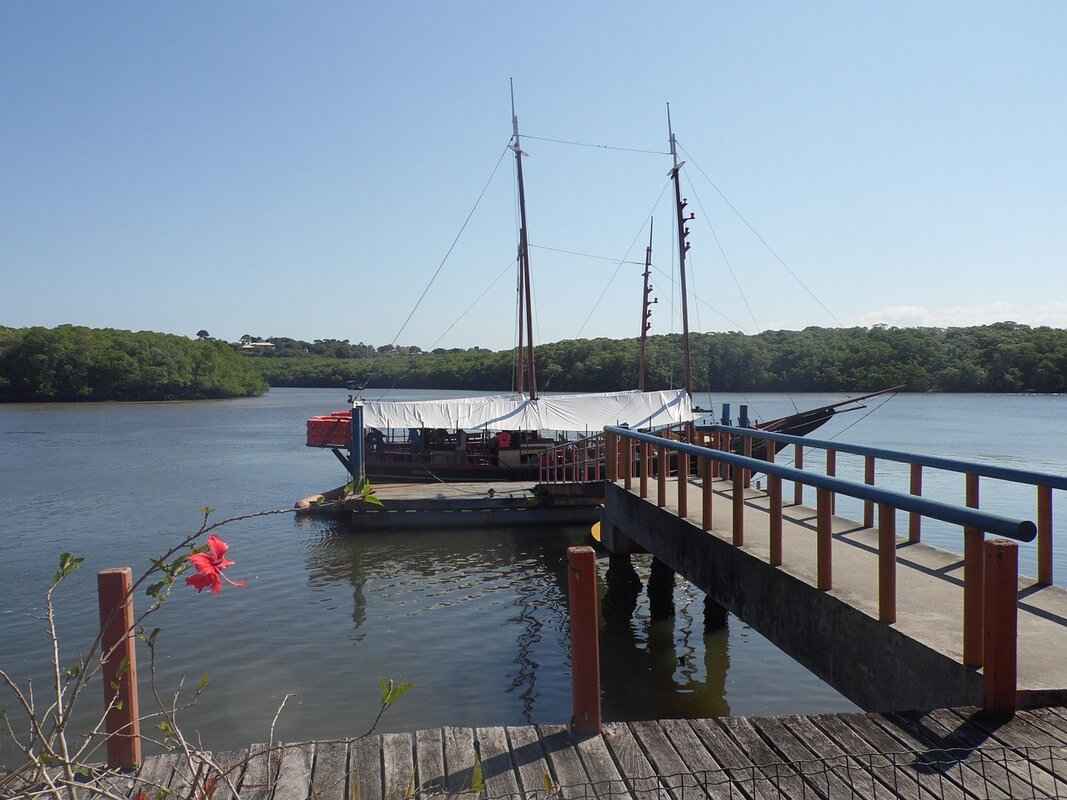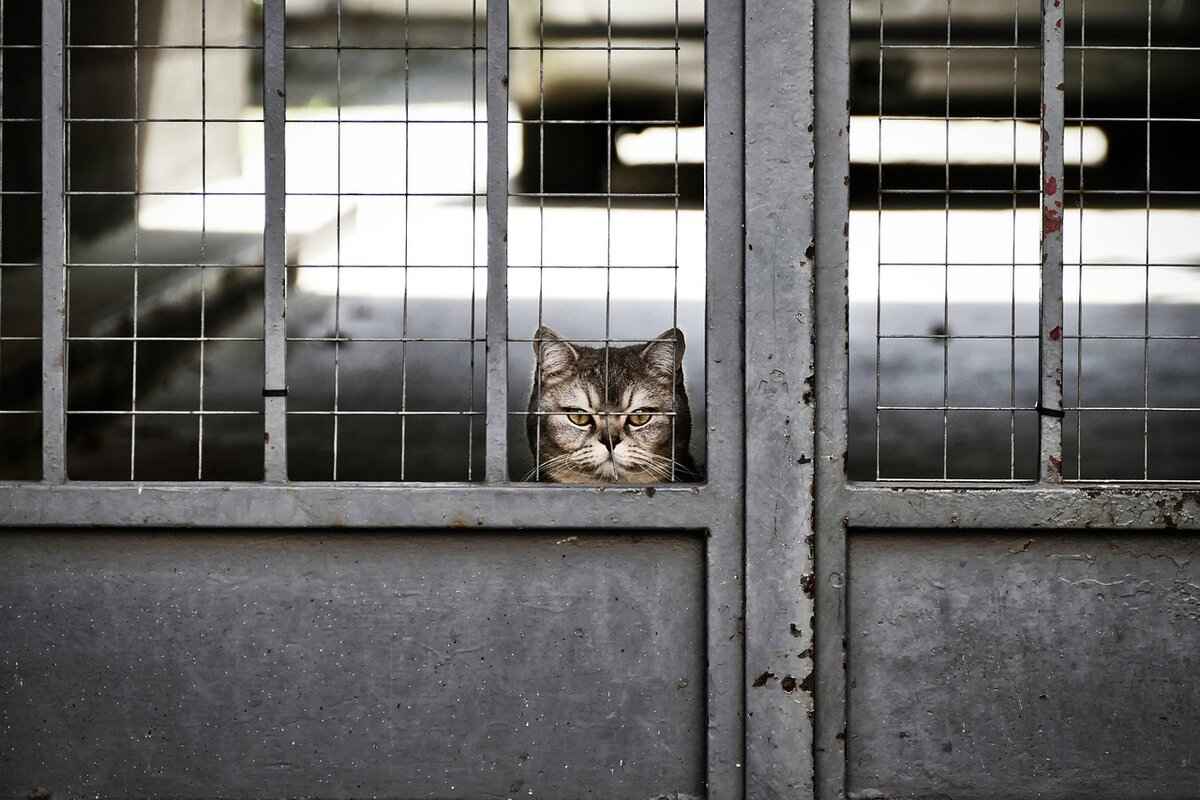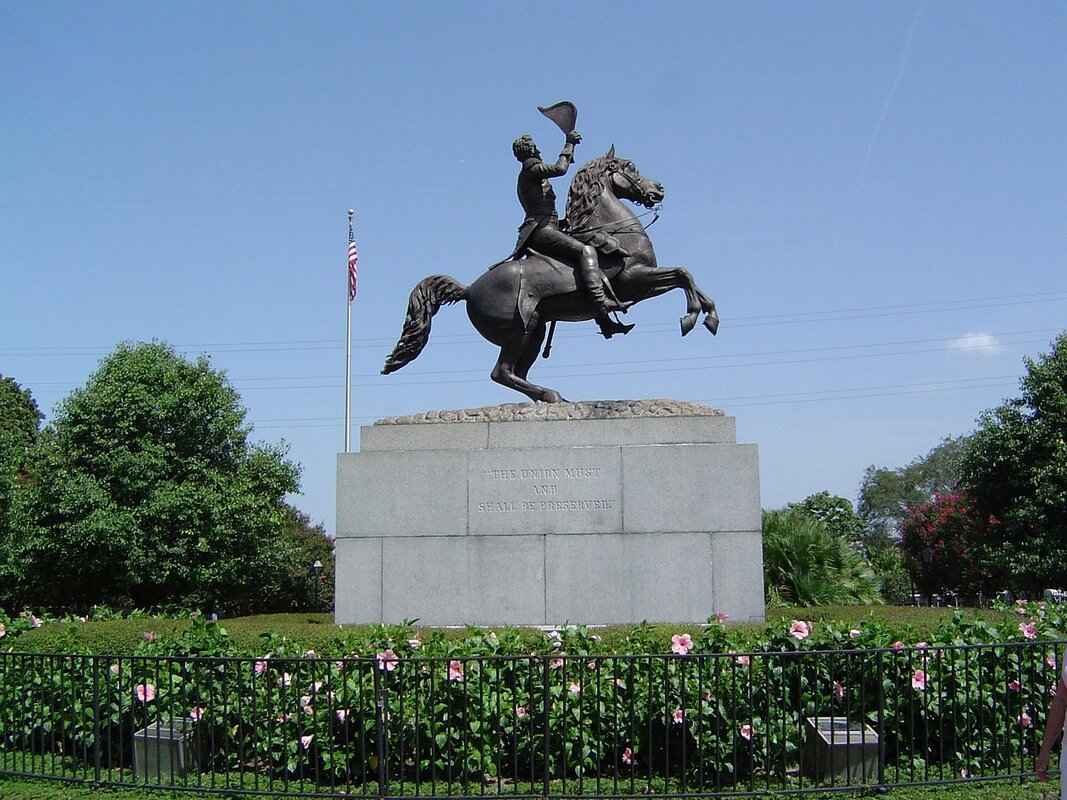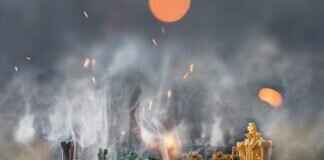In this article, we delve into Andrew Garfield’s reflections on his former girlfriend, Emma Stone. Their relationship, filled with both romantic moments and professional collaborations, has left a lasting impact on both their lives and careers. We will examine Garfield’s current thoughts on Stone, the dynamics of their relationship, and how their time together shaped their professional paths.
Andrew Garfield has been candid in expressing his admiration for Emma Stone. He often highlights their strong bond and the mutual respect that persists even after their romantic relationship concluded. In various interviews, Garfield has referred to Stone not just as a talented actress but as a remarkable person. He acknowledges the influence she has had on his life, stating that their experiences together were invaluable.
The connection between Garfield and Stone was not only personal but also pivotal to their careers. Their collaboration in the Spider-Man series showcased their undeniable chemistry, which resonated with audiences and critics alike. This partnership was instrumental in propelling both actors into the spotlight, allowing them to explore more diverse roles in the industry.
Shared experiences, both on and off set, played a significant role in solidifying their relationship. From behind-the-scenes moments during filming to public appearances, they created memories that contributed to their personal growth. Garfield has mentioned that these experiences helped him to appreciate Stone’s talents and character, enriching both their lives.
Despite their breakup, Garfield and Stone have demonstrated a remarkable ability to maintain professionalism in their careers. They continue to support each other’s projects, showcasing a commitment to their craft that transcends personal feelings. This ability to separate their personal and professional lives highlights their maturity and dedication to their work.
In recent interviews, both actors have spoken fondly of each other, indicating a lack of ill will. Their mutual respect is evident, and Garfield has expressed that he cherishes the time they spent together. This sentiment reflects a healthy understanding of their past relationship, which many fans admire.
Fans can draw valuable lessons from Garfield and Stone’s relationship. Their dynamic emphasizes the importance of respect and support in any relationship, romantic or otherwise. It serves as a reminder that even after romantic ties fade, it is possible to maintain a strong bond based on mutual appreciation.
Reports suggest that Garfield and Stone have managed to maintain a friendship post-breakup. Their ability to stay connected highlights the potential for relationships to evolve beyond romance. This friendship is a testament to their shared history and the respect they hold for one another.
Public appearances and mutual endorsements of each other’s work serve as evidence of their enduring friendship. Whether it’s congratulating each other at award shows or appearing together at events, these interactions demonstrate that they remain part of each other’s lives.
When Garfield and Stone are spotted together, they often display warmth and camaraderie. Their interactions suggest a strong bond that has withstood the test of time, much to the delight of their fans. This connection is a beautiful example of how past relationships can evolve into lasting friendships.

What Did Andrew Garfield Say About Emma Stone?
In the world of celebrity relationships, few pairings have captured the public’s imagination quite like Andrew Garfield and Emma Stone. Their on-screen chemistry in the Spider-Man series translated into a real-life romance that, while it has since ended, continues to resonate with fans and observers alike. Garfield’s reflections on their time together reveal not just a fondness for Stone, but a profound respect that has persisted beyond their romantic involvement.
Andrew Garfield has been vocal about his admiration for Emma Stone, emphasizing the strong bond they share. In various interviews, he has described her as an incredibly talented actress and a wonderful person. His words reflect a deep appreciation for her character and artistry, stating that their time together was instrumental in shaping him both personally and professionally. Garfield has noted that even after their romantic relationship concluded, the mutual respect and admiration they have for each other remain intact. This sentiment was particularly evident when he remarked, “Emma is someone I will always love and respect.”
The collaboration between Garfield and Stone in the Spider-Man series was a turning point for both actors. Their chemistry not only captivated audiences but also significantly impacted their careers. Garfield’s portrayal of Peter Parker was enhanced by his real-life relationship with Stone, who played Gwen Stacy. This synergy allowed them to deliver performances that felt authentic and heartfelt. As a result, both actors experienced a surge in their popularity, leading to more diverse roles and opportunities in Hollywood.
Shared experiences during filming and promotional events helped solidify their connection. The intense nature of working on a major blockbuster created a unique bond, allowing them to support each other through the pressures of fame. Garfield has mentioned that these experiences were not just professional; they were also personal milestones that contributed to their growth as individuals. This shared journey is a testament to how collaborative work can foster significant relationships, even beyond the screen.
Despite their breakup, Garfield and Stone have shown remarkable professionalism in their careers. They have continued to support each other’s projects, demonstrating that personal feelings can be set aside for the sake of mutual respect. Garfield’s comments about Stone’s work have often been filled with admiration, while Stone has reciprocated by praising Garfield’s performances in various roles. Their ability to navigate the complexities of their past relationship while maintaining a supportive professional rapport speaks volumes about their maturity and character.
Both actors have expressed fondness for one another in interviews, indicating that there is no lingering animosity between them. Their mutual respect is evident, showcasing a mature understanding of their past relationship. Garfield has referred to Stone as “an inspiration,” while Stone has acknowledged Garfield’s impact on her life and career. This ongoing admiration suggests that their bond, while no longer romantic, remains strong and meaningful.
The dynamic between Garfield and Stone offers valuable lessons about relationships and personal growth. Fans can learn that even after romantic ties have faded, respect and support can endure. Their story illustrates that love can evolve into a deep friendship, highlighting the importance of maintaining positive connections even when circumstances change. This perspective encourages individuals to cherish the good moments in their relationships, regardless of the outcome.
Reports suggest that Garfield and Stone have maintained a friendship post-breakup. Their ability to stay connected is a testament to the strength of their bond, demonstrating that relationships can evolve beyond romance. This friendship not only enriches their personal lives but also serves as a source of inspiration for fans who admire their journey.
Public appearances together and mutual endorsements of each other’s work indicate that Garfield and Stone remain a part of each other’s lives. They have been spotted at various events, where their interactions display warmth and camaraderie. Such moments reflect a strong bond that transcends their past romance, much to the delight of their fans. Their ability to navigate their relationship with grace serves as a reminder that friendships can endure even after romantic relationships end.

How Did Their Relationship Influence Their Careers?
In the world of Hollywood, relationships often play a crucial role in shaping the careers of actors. One such notable pair is Andrew Garfield and Emma Stone, whose relationship not only blossomed on-screen but also significantly influenced their professional trajectories. This article delves into how their romance and collaboration in the Spider-Man series impacted their careers, both positively and profoundly.
When Garfield and Stone starred together in the Spider-Man films, their chemistry was palpable. This dynamic partnership not only captivated audiences but also showcased their individual talents. The success of these films was pivotal for both actors, propelling them into the limelight and establishing them as leading figures in the industry.
Garfield’s portrayal of Peter Parker allowed him to demonstrate his range as an actor, while Stone’s role as Gwen Stacy highlighted her versatility and charm. Their performances were critically acclaimed, earning them accolades and opening doors to numerous opportunities. The films became a launching pad for their respective careers, leading to roles in high-profile projects.
Working closely on the Spider-Man series allowed Garfield and Stone to develop their craft in a supportive environment. They learned from each other, exchanging techniques and insights that enriched their performances. This collaboration not only strengthened their on-screen presence but also fostered a deep mutual respect that has persisted beyond their romantic relationship.
Despite their breakup, Garfield and Stone managed to maintain a professional demeanor, continuing to support each other’s work. This ability to separate personal feelings from professional commitments is commendable and speaks volumes about their character. Both actors have continued to thrive in their careers, with Garfield taking on diverse roles in dramatic films and Stone winning an Academy Award for her performance in La La Land.
Even after parting ways romantically, Garfield and Stone have publicly expressed admiration for each other’s work. Their supportive comments during interviews and social media interactions reflect a bond that transcends their previous relationship. This ongoing camaraderie showcases how professional respect can thrive even after personal ties have faded.
The relationship between Garfield and Stone serves as a powerful example for fans and aspiring actors alike. Their journey illustrates the importance of maintaining professionalism in the face of personal challenges. By prioritizing their careers and supporting each other, they have set a standard for how to navigate complex emotional landscapes while still achieving professional success.
While they have not starred together in recent projects, both actors have expressed interest in collaborating again in the future. Their shared experiences on set and the positive impact they had on each other’s careers leave fans hopeful for a reunion on-screen. Such a collaboration could not only reignite their on-screen chemistry but also serve as a testament to their enduring friendship.
In conclusion, the relationship between Andrew Garfield and Emma Stone has significantly influenced their careers, showcasing how personal connections can enhance professional growth. Their journey together highlights the importance of respect, support, and professionalism in the entertainment industry. As they continue to thrive in their respective careers, fans can only look forward to what the future holds for both talented actors.
Spider-Man
In this article, we delve into the fascinating world of , exploring its origins, cultural impact, and the evolution of its characters over the years. From comic books to blockbuster films, Spider-Man has become an enduring symbol of heroism and resilience.
Created by writer Stan Lee and artist Steve Ditko, Spider-Man first appeared in Amazing Fantasy #15 in 1962. The character was revolutionary, introducing a teenage superhero who faced everyday problems alongside supervillains. Peter Parker, the alter ego of Spider-Man, quickly became relatable to readers, embodying the struggles of adolescence.
Since his debut, Spider-Man has undergone numerous transformations. The character has been depicted in various comic book series, animated shows, and live-action films. Each iteration brings a unique perspective, reflecting the changing societal norms and expectations. For instance, the Sam Raimi trilogy in the early 2000s redefined superhero cinema, while the recent Marvel Cinematic Universe portrayal has integrated him into a larger narrative.
Spider-Man’s influence extends beyond entertainment. The character has become a symbol of hope and perseverance, inspiring countless fans worldwide. His motto, “With great power comes great responsibility,” resonates deeply, encouraging individuals to act morally and ethically. Various studies have shown that Spider-Man positively impacts youth, promoting values of bravery and integrity.
Spider-Man’s rogues’ gallery is one of the most diverse and compelling in comic book history. Notable villains include:
- Green Goblin – One of Spider-Man’s arch-nemeses, known for his twisted mind and personal vendetta against Peter Parker.
- Doctor Octopus – A brilliant scientist with mechanical tentacles, representing a formidable intellectual challenge for Spider-Man.
- Venom – A complex character who embodies both villainy and anti-heroism, showcasing the duality of good and evil.
Modern fans engage with Spider-Man through various mediums, including video games, merchandise, and social media. The recent Spider-Man: No Way Home film reignited interest in the character, drawing in both new fans and long-time supporters. The film’s multiverse concept allowed for nostalgic returns of past Spider-Man actors, creating a buzz in the fandom.
As the Marvel Cinematic Universe continues to expand, Spider-Man’s role will likely evolve. Upcoming projects and potential crossovers promise to keep the character relevant and engaging. Fans eagerly anticipate new storylines that explore deeper themes and character development.
In summary, Spider-Man remains a beloved figure in popular culture, symbolizing the struggles and triumphs of humanity. His journey from comic book pages to the big screen illustrates the character’s adaptability and enduring appeal.
series, which was pivotal for their professional trajectories. Their collaboration showcased their chemistry on-screen and off.
In this article, we explore Andrew Garfield’s thoughts on his ex-girlfriend Emma Stone, including their relationship dynamics, current feelings, and the impact of their time together on both their careers.
What Did Andrew Garfield Say About Emma Stone?
Andrew Garfield has openly expressed admiration for Emma Stone, highlighting their strong bond and mutual respect even after their romantic relationship ended. His comments reveal a deep appreciation for her as a person and an actress. Garfield has mentioned in interviews that their connection was special and that he cherishes the memories they created together.
How Did Their Relationship Influence Their Careers?
The relationship between Garfield and Stone significantly impacted both their careers, as they starred together in the Spider-Man series, which was pivotal for their professional trajectories. Their collaboration showcased their chemistry on-screen and off, allowing them to connect in a way that enhanced their performances. This partnership not only elevated their status in Hollywood but also created a lasting legacy in the superhero genre.
What Role Did Their Shared Experiences Play?
Shared experiences on set and in public life helped solidify their connection. Their time together allowed them to grow both personally and professionally, making their relationship a memorable chapter in their lives. They navigated the pressures of fame and the demands of their careers together, which undoubtedly forged a strong bond.
Did Their Breakup Affect Their Professional Lives?
Despite their breakup, Garfield and Stone maintained professionalism, continuing to support each other’s projects and endeavors. Their ability to separate personal feelings from professional commitments speaks volumes about their character. They have often been seen attending each other’s premieres and celebrating each other’s successes, showcasing a commitment to mutual respect.
How Do They View Each Other Now?
Both actors have spoken fondly of each other in interviews, indicating that they harbor no ill will. Their mutual respect continues to be evident, showcasing a mature understanding of their past relationship. Garfield has even referred to Stone as one of his favorite collaborators, emphasizing how their time together shaped him as an actor.
What Can Fans Learn From Their Relationship?
Fans can glean insights into how relationships can evolve over time. Garfield and Stone’s dynamic illustrates the importance of respect and support, even after romantic ties have faded. Their story serves as a reminder that love can transform into a deep friendship, providing a positive example for those navigating similar situations.
Are They Still Friends Today?
Despite their breakup, Garfield and Stone have been reported to maintain a friendship. Their ability to stay connected highlights the possibility of evolving relationships beyond romance. They have shown that it is possible to remain close even when romantic feelings have dissipated.
What Evidence Supports Their Ongoing Friendship?
Public appearances and mutual endorsements of each other’s work suggest that they remain in each other’s lives, proving that friendships can endure even after romantic relationships end. They have been spotted together at events and have publicly praised one another’s projects, reinforcing the idea that their bond is still strong.
How Do They Interact in Public?
When spotted together at events, Garfield and Stone display warmth and camaraderie, indicating a strong bond that transcends their past romance, much to the delight of their fans. Their interactions are often filled with laughter and genuine affection, which resonates with audiences who have followed their journey.
In conclusion, the relationship between Andrew Garfield and Emma Stone serves as a fascinating case study on the evolution of love and friendship within the entertainment industry. Their ability to maintain a positive relationship post-breakup is a testament to their maturity and respect for one another.
What Role Did Their Shared Experiences Play?
In the world of cinema, the connections formed between actors can often transcend the screen, leading to lasting friendships and professional collaborations. One such relationship is that of Andrew Garfield and Emma Stone. Their shared experiences, both on set and in public life, played a pivotal role in solidifying their bond and shaping their careers.
Throughout their time together, Garfield and Stone created a wealth of memorable moments that deepened their connection. Working closely on the Spider-Man films not only allowed them to showcase their undeniable chemistry but also provided a backdrop for personal growth. The challenges and triumphs they faced while filming contributed to a unique understanding of each other, fostering a relationship that was both supportive and inspiring.
- On-Set Collaboration: The intense environment of filming action-packed scenes required trust and teamwork. This collaboration allowed them to rely on one another, building a strong foundation for their relationship.
- Public Appearances: Their joint appearances at various events, from premieres to award shows, further solidified their connection. Each moment captured by the media highlighted their genuine affection and mutual respect.
- Shared Experiences: Beyond the camera, their shared experiences in navigating the complexities of fame and success allowed them to grow together. They understood the pressures of the industry, which brought them closer.
Moreover, the emotional support they provided each other during challenging times was invaluable. Both actors experienced their fair share of ups and downs in their careers, and having someone who truly understood the industry was a source of comfort. This emotional bond allowed them to thrive both personally and professionally.
Garfield and Stone’s relationship was not just a personal affair; it significantly influenced their careers as well. Their work in the Spider-Man series propelled them into the spotlight, showcasing their talents to a broader audience. The success of these films opened doors for both actors, leading to a variety of roles that highlighted their versatility.
As they transitioned into different projects, the lessons learned from their time together remained with them. Garfield often speaks of the impact Stone had on his acting style, while Stone acknowledges the confidence Garfield instilled in her. Their ability to inspire and challenge each other contributed to their growth as actors.
Despite their romantic relationship coming to an end, both Garfield and Stone have demonstrated remarkable professionalism. They have continued to support each other’s work, attending premieres and voicing admiration for one another in interviews. This mutual respect is a testament to their character and the strength of their bond.
In recent interviews, both actors have expressed fondness for each other, indicating that their feelings remain positive. Garfield has referred to Stone as a “wonderful person”, while Stone has praised Garfield’s talent and character. Their ability to maintain a healthy relationship post-breakup showcases a mature understanding of their shared history.
Reports suggest that Garfield and Stone have maintained a friendship despite their breakup. This enduring connection highlights the possibility of evolving relationships that go beyond romance. Their ability to stay friends speaks volumes about their respect for one another and the bond they formed during their time together.
Public sightings and interactions between Garfield and Stone continue to suggest that they are indeed friends. Whether it’s a casual meeting at an industry event or supportive comments made in interviews, their interactions reflect a strong camaraderie that many fans appreciate.
Ultimately, the journey of Andrew Garfield and Emma Stone is a beautiful example of how shared experiences can lead to lasting connections. Their relationship, rooted in mutual respect and admiration, serves as a reminder of the importance of supporting one another, both personally and professionally.
Did Their Breakup Affect Their Professional Lives?
In the world of Hollywood, where personal relationships often intertwine with professional commitments, the story of Andrew Garfield and Emma Stone stands out. Their journey as a couple and later as friends emphasizes the importance of maintaining professionalism, even amidst personal challenges. This article delves into the dynamics of their relationship post-breakup and how they have managed to support one another in their respective careers.
Despite the emotional complexities that come with a breakup, Garfield and Stone have demonstrated remarkable professionalism. Their ability to separate personal feelings from work commitments is a testament to their character and maturity. After parting ways, both actors continued to thrive in their careers, showcasing their dedication to their craft.
One of the most notable aspects of their relationship is their unwavering support for each other’s projects. Garfield has been seen publicly endorsing Stone’s films, and vice versa. This mutual encouragement not only reflects their respect for one another but also highlights a strong bond that transcends romantic ties. Their interactions suggest that they have cultivated a friendship that is both genuine and supportive.
In various interviews, Garfield has expressed admiration for Stone’s talent, often praising her performances. This admiration is not one-sided; Stone has also spoken highly of Garfield, acknowledging his impressive range as an actor. Their public statements about each other are filled with respect and appreciation, indicating a healthy dynamic that continues to flourish.
- Supportive Public Endorsements: Both actors have made it a point to publicly support each other’s projects, showcasing their commitment to remaining allies.
- Collaborative Spirit: Their shared experiences, particularly during the filming of the Spider-Man series, have fostered a collaborative spirit that persists even after their romantic involvement.
- Professional Respect: Their ability to maintain a professional demeanor in public appearances speaks volumes about their character and dedication to their work.
The story of Garfield and Stone serves as a valuable lesson for many. It illustrates that relationships can evolve, and even after romantic feelings fade, respect and support can remain. Their journey underscores the importance of maintaining professionalism in the face of personal challenges.
Moreover, their dynamic offers insights into how individuals can navigate the complexities of relationships in a high-pressure environment like Hollywood. By prioritizing their careers while still valuing their connection, they set an example for others in similar situations.
Reports suggest that Garfield and Stone have successfully maintained a friendship post-breakup. Their continued connection highlights that relationships can take on new forms, evolving from romance to a supportive friendship. This evolution is not only admirable but also realistic, demonstrating that personal growth can occur even after significant changes in relationships.
Public appearances together and social media interactions provide evidence of their ongoing friendship. They have been spotted together at various events, often displaying warmth and camaraderie. This interaction is reassuring for fans, as it indicates that both actors have managed to keep their bond alive, despite the end of their romantic relationship.
In conclusion, Andrew Garfield and Emma Stone’s story is a remarkable example of how two individuals can navigate the complexities of love, friendship, and professional commitments. Their ability to support one another while pursuing their careers is commendable and serves as a source of inspiration for many.
How Do They View Each Other Now?
In the realm of Hollywood romances, few relationships have captured the public’s imagination quite like that of Andrew Garfield and Emma Stone. Their on-screen chemistry in the Spider-Man series translated into a real-life romance that was both adored and scrutinized by fans and media alike. After their breakup, many wondered how they viewed each other now. This article delves into their current relationship dynamics, showcasing their mutual respect and admiration.
Both actors have consistently spoken fondly of each other in interviews. Garfield has praised Stone’s talent and character, often referring to her as a “wonderful person”. In turn, Stone has acknowledged Garfield’s dedication to his craft and his kind nature. Their words indicate that they harbor no ill will towards one another, which is a testament to their maturity and understanding of their shared history.
Their mutual respect is evident in various ways. For instance, during promotional events, Garfield and Stone have been known to support each other’s projects, highlighting their professional admiration. This behavior reflects a deep-seated appreciation that goes beyond mere friendship.
Fans have observed that when Garfield and Stone interact in public, there is a palpable warmth between them. Their body language often suggests comfort and familiarity, further indicating a strong bond that transcends their past romance. This dynamic serves as a reminder that relationships can evolve and mature over time, leading to meaningful friendships.
Reports suggest that Garfield and Stone have maintained a friendship post-breakup. They occasionally attend industry events and support each other’s work, showcasing that their connection remains intact. This ongoing relationship illustrates how friendships can endure even after romantic ties have faded.
- Public appearances together, where they display camaraderie and warmth.
- Social media interactions that indicate a friendly rapport.
- Mutual endorsements of each other’s projects, demonstrating professional respect.
When spotted together at events, Garfield and Stone often engage in lighthearted conversations, sharing laughs and smiles. This interaction not only delights fans but also reinforces the idea that their relationship has evolved into a supportive friendship. Their ability to interact positively in public speaks volumes about their character and the respect they hold for one another.
Garfield and Stone’s dynamic serves as an inspiring example for fans. It highlights the importance of respect and support in relationships, even after romantic feelings have faded. Their journey illustrates that love can transform into a deep friendship, emphasizing that endings can also lead to new beginnings.
In conclusion, Andrew Garfield and Emma Stone’s relationship is a testament to the power of mutual respect and understanding. Their ability to maintain a positive connection post-breakup is a valuable lesson for fans and a reminder that relationships can take many forms, evolving in ways that are both unexpected and enriching.
What Can Fans Learn From Their Relationship?
In the world of celebrity relationships, few pairings have captured the public’s imagination quite like that of Andrew Garfield and Emma Stone. Their journey together, from romantic partners to respected friends, offers a rich tapestry of insights into how relationships can evolve over time. Fans can glean valuable lessons from their dynamic, particularly regarding the importance of respect and support, even after romantic ties have faded.
Relationships are rarely static; they are fluid entities that can shift based on personal growth, external circumstances, and individual priorities. Garfield and Stone’s relationship exemplifies this evolution. Initially, their connection was fueled by passion and romance, but as time passed, they transitioned into a phase characterized by mutual respect and admiration.
One of the most significant aspects of Garfield and Stone’s relationship is the respect they have maintained for one another. Even after their romantic involvement ended, both actors have spoken highly of each other in interviews. This ongoing respect is crucial for anyone navigating the complexities of post-relationship dynamics. It demonstrates that valuing each other’s contributions—both personally and professionally—can lead to a healthier, more supportive friendship.
Support is another critical element that Garfield and Stone have exemplified. Despite their breakup, they have continued to cheer for each other’s successes. This support is not merely superficial; it reflects a deep understanding of each other’s goals and aspirations. Fans can learn that providing emotional backing—even after a relationship has changed—can foster a positive environment for both parties.
Many people wonder if it’s possible to maintain a friendship after a romantic relationship ends. Garfield and Stone’s relationship serves as a testament to this possibility. Their ability to remain friends showcases that a strong bond can persist, even when romantic feelings have dissipated. This transition from lovers to friends is a powerful reminder that love can take many forms, and sometimes, the strongest relationships are those that evolve.
- Emotional Intelligence: Understanding and managing emotions is essential in any relationship, especially during transitions.
- Communication: Open and honest dialogue can help clarify feelings and intentions, making it easier to navigate changes.
- Boundaries: Setting appropriate boundaries can help maintain a healthy friendship after a romantic relationship.
- Mutual Growth: Supporting each other’s personal growth can lead to stronger connections, whether romantic or platonic.
Public appearances and mutual endorsements of each other’s work further indicate that Garfield and Stone have successfully maintained their friendship. Their interactions at various events are marked by warmth and camaraderie, illustrating that their bond transcends past romantic ties. This behavior not only delights their fans but also serves as a model for others navigating similar situations.
In conclusion, the relationship between Andrew Garfield and Emma Stone offers invaluable lessons on how to navigate the complexities of love, friendship, and personal growth. Their story emphasizes the importance of respect, support, and the potential for friendships to endure, even after romantic relationships have ended. Fans can take these insights to heart, applying them to their own lives and relationships.
Are They Still Friends Today?
In the world of celebrity relationships, the dynamics between former partners can often be complicated. However, the friendship between Andrew Garfield and Emma Stone stands out as a remarkable example of how love can transform into a lasting bond. This article delves into their ongoing friendship, exploring its foundations and significance in both their lives.
Despite their breakup, Garfield and Stone have been reported to maintain a friendship. Their ability to stay connected highlights the possibility of evolving relationships beyond romance. This transition from lovers to friends is not always easy, but Garfield and Stone have navigated it gracefully.
Public appearances and mutual endorsements of each other’s work suggest that they remain in each other’s lives. For instance, they have been spotted at various industry events, where they exhibit a warmth and camaraderie that is hard to ignore. Such interactions indicate that their relationship has matured, allowing them to support one another without the complications of past romantic ties.
When Garfield and Stone are seen together, they often share light-hearted moments that showcase their strong bond. Whether it’s a casual chat or a shared laugh, their interactions reflect a deep-seated respect and affection that transcends their previous romance. Fans have noted that their chemistry remains palpable, which is a testament to their ability to maintain a positive relationship.
Friends and colleagues of both actors have remarked on how well Garfield and Stone get along post-breakup. They describe their relationship as one marked by mutual admiration and respect. This sentiment is echoed in interviews where both actors have spoken highly of each other, reinforcing the idea that they have successfully navigated their transition from partners to friends.
Their shared experiences in the entertainment industry, particularly during their time working on the Spider-Man series, have undoubtedly shaped their connection. Both actors have acknowledged that their collaboration not only boosted their careers but also laid the foundation for a lasting friendship. This professional bond has allowed them to celebrate each other’s successes, further solidifying their relationship.
Garfield and Stone’s dynamic illustrates the importance of respect and support, even after romantic ties have faded. Fans can glean insights into how relationships can evolve over time, demonstrating that love can take many forms. Their ability to remain friends serves as an inspiring example for others who may be navigating similar situations.
While there have been no official announcements regarding future collaborations between Garfield and Stone, the possibility of them working together again is a topic of speculation among fans. Both actors have expressed a desire to support each other’s careers, which leaves the door open for potential projects that could bring them back together on screen.
In conclusion, the friendship between Andrew Garfield and Emma Stone is a powerful reminder that relationships can evolve positively. Their ability to maintain a strong bond post-breakup reflects maturity and mutual respect, serving as an encouraging example for fans and followers alike.
What Evidence Supports Their Ongoing Friendship?
When it comes to the relationship between Andrew Garfield and Emma Stone, their journey is a testament to how deep connections can evolve over time. Despite the romantic chapter they shared, the duo has managed to maintain a significant friendship, which is evident through various public interactions and mutual support.
One of the most telling signs of their ongoing friendship is their public appearances together. Whether at award shows or film premieres, Garfield and Stone often exhibit a sense of camaraderie that resonates with fans. Their interactions are characterized by warmth and genuine affection, showcasing that their bond has endured beyond romance.
Another crucial aspect of their friendship is the mutual endorsements of each other’s work. Both actors have publicly praised each other’s performances in various projects. For instance, Garfield has openly lauded Stone’s talent and versatility as an actress, while Stone has reciprocated by expressing admiration for Garfield’s dedication to his craft. This professional respect highlights the strength of their connection.
In today’s digital age, social media plays a significant role in maintaining relationships. While Garfield and Stone may not flood their feeds with posts about each other, their sporadic interactions on platforms like Instagram serve as a reminder of their friendship. These subtle acknowledgments, such as likes or comments on each other’s posts, indicate that they are still present in each other’s lives.
The shared experiences that Garfield and Stone accumulated during their time together on the set of The Amazing Spider-Man series have undoubtedly contributed to their lasting friendship. The challenges and triumphs they faced while working closely together fostered a unique bond that transcends typical romantic relationships. Their ability to navigate the complexities of fame together has only strengthened their connection.
Despite their busy schedules, Garfield and Stone have been known to catch up and communicate regularly. Friends of the actors have mentioned that they still share a strong rapport, often reaching out for advice or simply to check in on each other. This ongoing communication is a crucial element in maintaining their friendship.
Fans of both actors have expressed their delight in seeing Garfield and Stone support each other publicly. Many appreciate the mature way they handle their relationship, viewing it as a model for how friendships can evolve after romantic ties. The positive reception from fans further emphasizes the significance of their bond, proving that it resonates with many.
As both actors continue to thrive in their careers, the possibility of future collaborations remains an exciting prospect for fans. Given their history and mutual respect, a project featuring both Garfield and Stone could not only reignite their on-screen chemistry but also serve as a celebration of their enduring friendship.
In conclusion, the evidence supporting the ongoing friendship between Andrew Garfield and Emma Stone is abundant. Through public appearances, mutual endorsements, and continued communication, they exemplify how genuine connections can persist even after romantic relationships have ended. Their story serves as an inspiring reminder that friendships can be just as meaningful and enduring as romantic ties.

How Do They Interact in Public?
When it comes to the interactions between Andrew Garfield and Emma Stone in public, their chemistry is undeniable. Their appearances together often radiate a sense of genuine warmth and camaraderie, which is a testament to the strong bond they share, even post-romance. This connection is not only heartwarming for their fans but also serves as a fascinating study of how former couples can maintain a healthy relationship.
During public events, Garfield and Stone often engage in light-hearted banter and affectionate gestures, showcasing a level of comfort that many find admirable. Their ability to interact so effortlessly suggests that they have successfully navigated the complexities of their past relationship. Fans have noted how their smiles and laughter convey a mutual respect that transcends their romantic history.
One of the most heartening aspects of their relationship is their ongoing support for each other’s careers. Whether it’s attending premieres or promoting each other’s work, Garfield and Stone have shown that they can celebrate each other’s successes without any lingering bitterness from their breakup. This professional camaraderie is not only refreshing but also sets a standard for how former partners can uplift one another.
Both actors have shown remarkable poise when it comes to handling media scrutiny. They often deflect questions about their past relationship with grace, focusing instead on their current endeavors. This approach not only protects their privacy but also allows them to maintain a positive public image. Fans appreciate their ability to keep the focus on their work rather than their personal lives.
The dynamic between Garfield and Stone serves as an inspiring example for fans. Their interactions demonstrate that it is possible to remain friends after a romantic relationship ends. This reality resonates with many who have experienced similar situations, providing a sense of hope and understanding. Fans often express their delight at seeing the two together, reinforcing the idea that love can evolve into a different form of connection.
- Red Carpet Events: At various film premieres, the duo has been spotted sharing jokes and reminiscing about their time together, which often leads to adorable photo opportunities.
- Interviews: In media interviews, both actors have taken the time to speak highly of one another, often highlighting their shared experiences and growth.
- Social Media: Occasionally, they have been known to like or comment on each other’s posts, subtly indicating their ongoing connection.
Fans are overwhelmingly supportive of Garfield and Stone’s friendship. Social media platforms buzz with positive comments whenever they are seen together, emphasizing how much their bond is cherished. Many followers express that their interactions make them feel nostalgic about their on-screen chemistry, reminding them of the characters they portrayed in the Spider-Man series. This continued admiration from fans illustrates the lasting impact of their relationship.
In summary, Andrew Garfield and Emma Stone’s public interactions reveal a profound friendship that has withstood the test of time. Their ability to engage warmly and supportively, even after a romantic relationship, sets a commendable example for fans and fellow actors alike. This dynamic not only enriches their personal lives but also serves as a beacon of positivity in the often tumultuous world of celebrity relationships.
Frequently Asked Questions
- What does Andrew Garfield think of Emma Stone now?
Andrew Garfield has expressed a lot of admiration for Emma Stone, highlighting their strong bond and mutual respect. He speaks fondly of her, showing that their connection remains significant even after their romantic relationship ended.
- How did their relationship impact their careers?
Their time together, especially while filming the Spider-Man series, played a crucial role in shaping their careers. Their undeniable chemistry not only captivated audiences but also helped propel both of their careers forward.
- Are Andrew Garfield and Emma Stone still friends?
Yes! Despite their breakup, they have been reported to maintain a friendship. Their ability to stay connected speaks volumes about their maturity and the respect they hold for each other.
- How do they interact when they meet in public?
When spotted together, Garfield and Stone exhibit warmth and camaraderie, showcasing a strong bond that transcends their past romance. Their interactions are often filled with laughter and genuine affection, much to the delight of their fans.
- What can fans learn from their relationship?
Fans can take away valuable lessons about how relationships can evolve over time. Garfield and Stone’s dynamic illustrates the importance of respect and support, even after romantic ties have faded.














